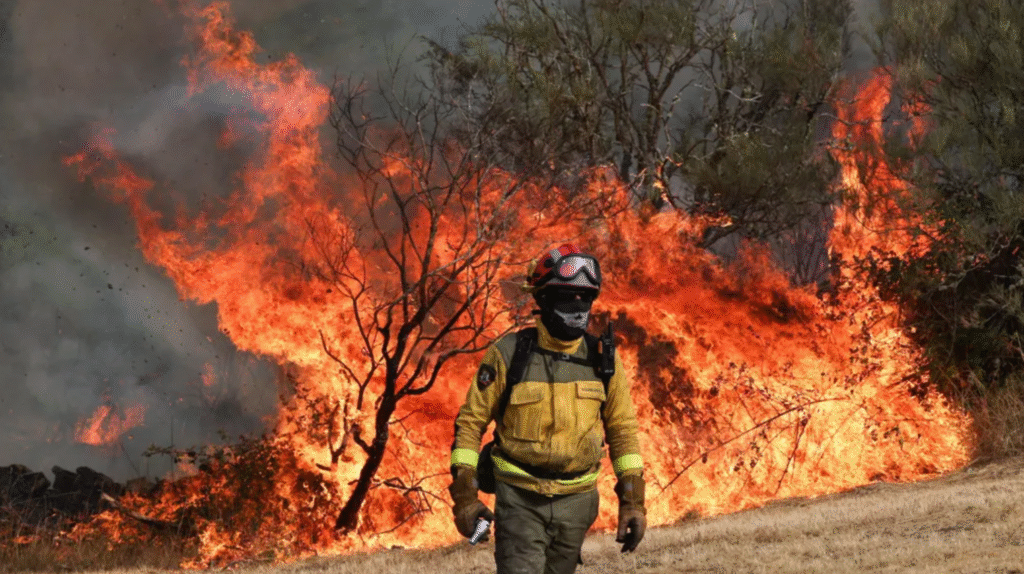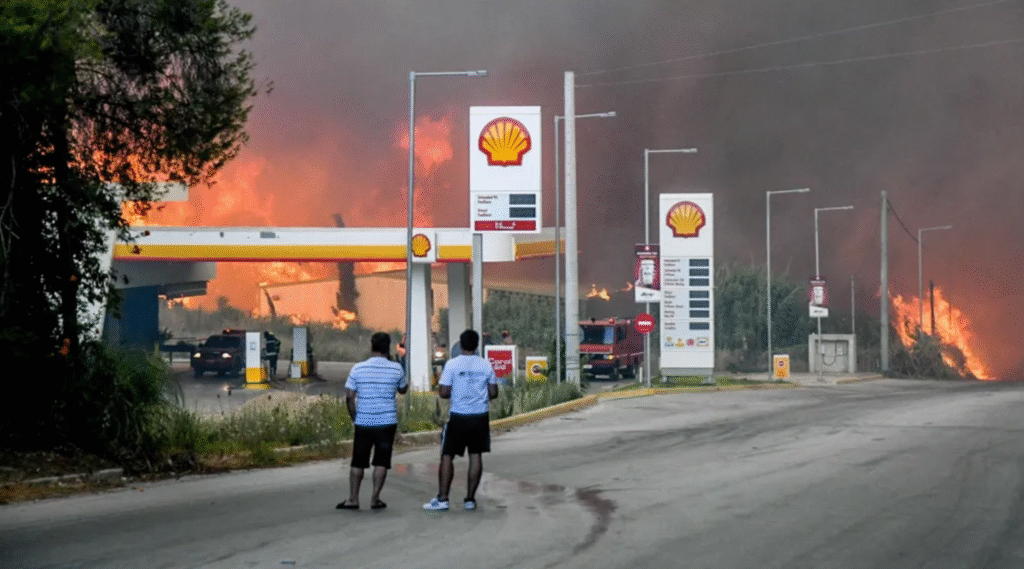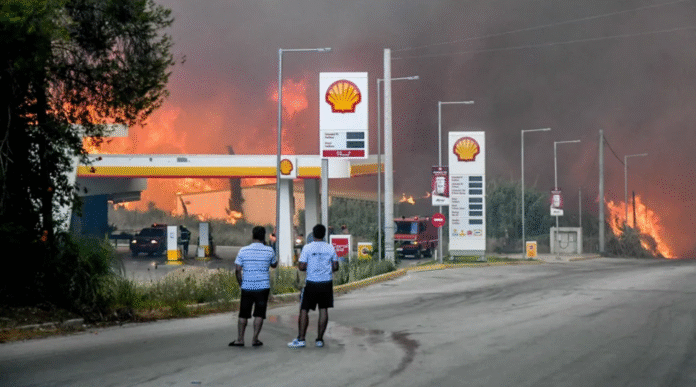EU Wildfire Aid Spain: Urgent Response as Heatwave Intensifies
The EU wildfire aid Spain effort has been officially launched after Spain activated the European Union’s disaster assistance mechanism for the first time in history. The urgent call for help comes as wildfires continue to devastate parts of the country, claiming three lives and forcing thousands from their homes.
Two French Canadair water bomber aircraft have arrived in Spain’s north-western Galicia region, ready to battle the flames. Government representative Pedro Blanco emphasized unity, stating, “The fight against fires knows no borders.” The planes are expected to be deployed as soon as conditions demand.
EU Wildfire Aid Spain: A Cross-Border Effort to Save Lives
Interior Minister Fernando Grande-Marlaska explained that while the aircraft were not immediately required, their early arrival ensures rapid deployment when needed. This proactive step is crucial, as weather forecasts predict the heatwave will continue until Monday, with temperatures soaring to 44°C and moderate winds increasing fire risk.
Spain is now the fifth European nation this summer to request help through the EU’s civil protection mechanism, joining Greece, Bulgaria, Montenegro, and Albania. In Greece alone, 25,000 acres have already been consumed by flames in just three days.

Rising Death Toll Sparks Urgent Action
The tragedy deepened on Thursday when a volunteer firefighter in León died from severe burns, marking the second volunteer fatality in the region and the third wildfire-related death nationwide. Prime Minister Pedro Sánchez expressed condolences:
“We are struck once again by the loss of a volunteer in León. Our love and support go out to their family and friends during this unbearable time.”
Arson Arrests Add to the Crisis
The Spanish Civil Guard has arrested two men suspected of intentionally starting fires in Castille and León, bringing the total number of arson-related arrests since June to ten. Authorities warn that even accidental actions like discarded cigarette stubs, unattended barbecues, or abandoned glass bottles can spark massive blazes.
Under Spanish law, causing a wildfire, whether deliberate or not, is a criminal offense with severe penalties.
Mass Evacuations and Unrelenting Flames
Evacuation orders have displaced thousands across Spain, with 700 residents in Cáceres forced to leave on Wednesday alone. Wildfires are a recurring summer threat in southern Europe, but this year’s blazes are fueled by relentless heatwaves linked to climate change, which make fires more intense and harder to contain.
EU data reveals that since January, 629,000 hectares (1.6 million acres) have burned across the bloc, with Spain accounting for roughly a quarter of that devastation.
Climate Change and the Escalation of Fires
Although connecting individual extreme weather events directly to climate change can be complex, scientists agree that rising global temperatures are making heatwaves longer, hotter, and more frequent. Prolonged dry conditions turn vegetation into tinder, creating ideal conditions for wildfires to spread uncontrollably.
Spain’s current crisis mirrors situations in Greece, where authorities have issued red alerts in Attica, Evia, eastern Central Greece, and other regions. Fires on the island of Chios and in the Peloponnese continue to burn despite massive firefighting efforts.
International Solidarity in Action
The EU wildfire aid Spain response highlights the strength of cross-border collaboration. The civil protection mechanism allows any member country to request immediate assistance when facing disasters, and the current wildfire season has prompted multiple activations.
In addition to Spain, fires have been reported in Albania, Montenegro, Bulgaria, and Turkey. Several firefighters in these countries have sustained injuries while combating the flames.
In Greece, 95 people, including both civilians and emergency responders, have been injured, and thousands have been evacuated by sea due to the scale of the fires.
The Fight is Far from Over
Authorities in Spain and across southern Europe are bracing for more challenges in the days ahead. The heatwave shows no sign of abating, and moderate winds are expected to spread embers into unburned areas.
Prime Minister Sánchez has hinted at the possibility of requesting even more EU aid should the situation escalate. Meanwhile, volunteer and professional firefighters continue to put their lives on the line to protect communities and natural landscapes.

EU Civil Protection Mechanism: How It Works
The EU’s civil protection mechanism coordinates emergency aid between member states and partner nations. When activated, resources, such as aircraft, firefighting teams, and medical assistance, can be deployed quickly to the affected country.
This system has been increasingly used in recent years as climate change intensifies the frequency of natural disasters, from wildfires to floods.
A Call for Vigilance and Responsibility
Authorities are urging the public to remain vigilant. Avoiding open flames, properly disposing of cigarettes, and steering clear of activities that could ignite fires are essential to preventing further tragedies.
The EU wildfire aid Spain mission serves as a reminder that stopping wildfires isn’t only the job of emergency responders, public cooperation is equally vital.

